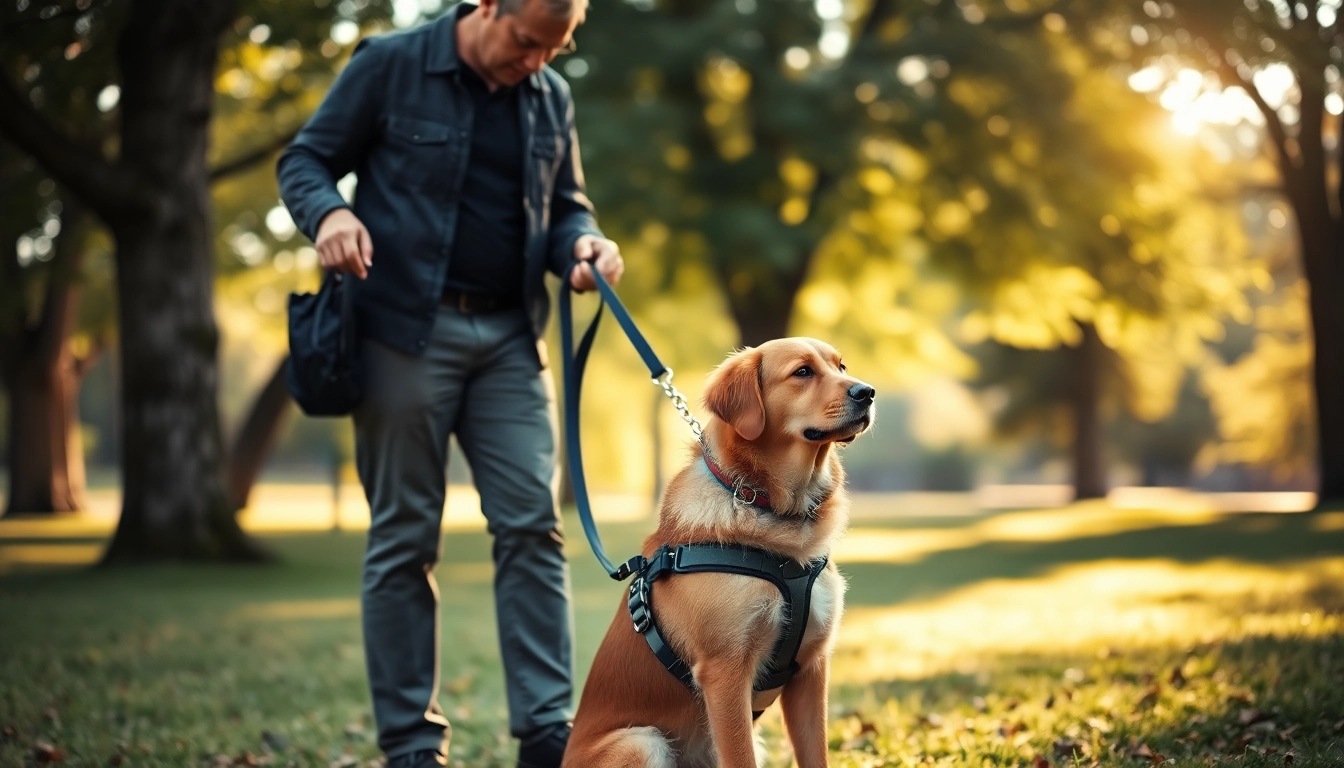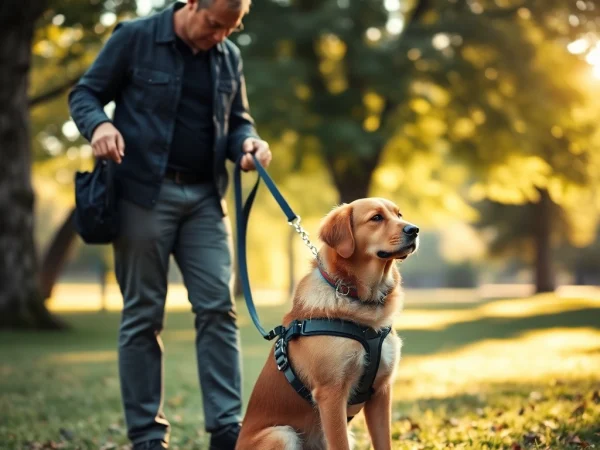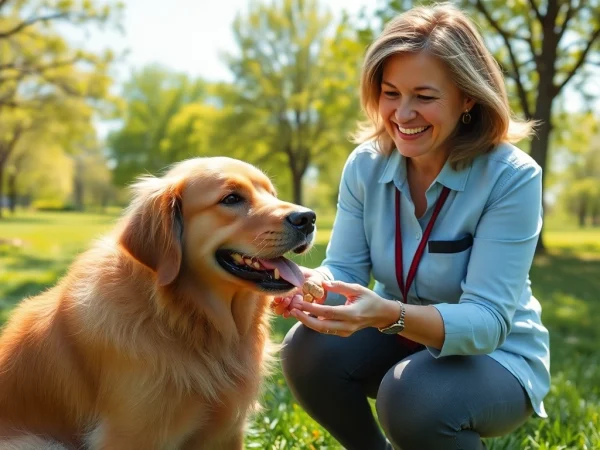Why Buy a Service Dog: Understanding Your Options and Needs
Understanding Service Dogs and Their Benefits
Definition of Service Dogs
Service dogs are specially trained canines that assist individuals with disabilities by performing specific tasks to enhance their independence and quality of life. Unlike therapy dogs or emotional support animals, service dogs are trained to execute particular tasks as defined by the Americans with Disabilities Act (ADA). This includes guiding individuals with visual impairments, alerting those with hearing difficulties, retrieving items, and providing support for disabled veterans or those suffering from mobility impairments.
How Service Dogs Improve Quality of Life
Service dogs can significantly improve the quality of life for their handlers. These dogs provide not only physical assistance but also emotional support. For individuals facing challenges such as PTSD, anxiety, or depression, a service dog offers companionship and encouragement. The presence of a service dog can decrease stress, foster social interactions, and create a sense of security. Many studies have indicated that having a service dog can lower anxiety levels, increase physical activity, and improve general well-being, ultimately contributing to a higher quality of life.
Recognizing Different Types of Service Dogs
Understanding the different types of service dogs is vital for anyone looking to purchase one. These include but are not limited to:
- Guide Dogs: Trained to assist visually impaired individuals navigate their surroundings.
- Hearing Dogs: Alert individuals who are deaf or hard of hearing to important sounds.
- Mobility Assistance Dogs: Help individuals with physical disabilities perform tasks like opening doors and retrieving items.
- Medical Alert Dogs: Trained to sense medical conditions such as seizures or respiratory issues and notify their handlers.
- Psychiatric Service Dogs: Support individuals with mental health disorders by providing companionship and assistance during crises.
Key Considerations When You Buy a Service Dog
Assessing Your Specific Needs
Before you buy a service dog, it’s critical to assess your specific needs. Consider the challenges you face and what tasks a service dog could help you accomplish. For example, individuals with mobility challenges may need a dog that can retrieve objects or open doors, while those dealing with anxiety may need a dog that can provide calm and reassurance in stressful situations. Take the time to identify scenarios in your daily life where a service dog could have the most impact.
Choosing the Right Breed and Training Level
Once you’ve assessed your needs, the next step is to choose the right breed and training level. Different breeds excel in various tasks. For instance, Labrador Retrievers and Golden Retrievers are frequently chosen for their friendly demeanor and intelligence, making them excellent guide dogs. Meanwhile, smaller breeds like the Poodle may be more suited for individuals with limited living space. Moreover, the dog’s training level is equally important; you need to decide whether you prefer a fully trained dog or one that requires further training to fit your specific needs.
Evaluating Costs and Budgeting for a Service Dog
Service dogs come with a range of costs, including initial purchase, training, and ongoing care. The price of obtaining a fully trained service dog can range from $15,000 to $30,000, depending on the training level and organization. Additionally, consider ongoing expenses such as food, regular veterinary care, liability insurance, and grooming. Budgeting wisely is essential to ensure you can afford not just the initial purchase, but the long-term care of your service dog.
Where to Buy a Service Dog: Your Options
Working with Professional Service Dog Organizations
One of the best places to start when looking to buy a service dog is through professional organizations that specialize in training and placing service dogs. These organizations usually have strict standards for training and can provide a variety of breeds and training types based on individual needs. They often have waiting lists due to high demand, but the benefit is that these dogs have been rigorously trained and assessed for compatibility with their future handlers.
Private Breeders vs. Adoption Options
While working with service dog organizations is the most reliable option, some individuals choose to go through private breeders. If you select this route, ensure that the breeder adheres to ethical breeding practices and can provide evidence of health checks and early socialization. Adoption is another viable option, as many agencies assist in matching trained dogs from shelters or rescue groups to individuals in need. While the dogs may not be perfectly trained for service tasks, many can be trained to meet specific requirements.
Online Platforms for Finding Service Dogs
In the digital age, many platforms exist that specialize in connecting individuals with service dogs for sale. These platforms can range from dedicated service dog websites to general pet adoption sites. Regardless of where you search, ensure you conduct thorough research into the reliability of the source, to prevent scams and ensure the dog is properly trained and socialized.
The Training Process After You Buy a Service Dog
Initial Training and Socialization Techniques
The training process does not end once you acquire a service dog. Initial training and socialization are crucial, especially if you have chosen a younger dog. Initial training should focus on basic commands, socialization with different environments, and exposure to various stimuli. If the dog is already trained, further training may include task-specific skills tailored to your unique needs.
Ongoing Training and Handler Education
Ongoing training is vital to maintain the handler-dog bond and ensure the service dog remains well-behaved and effective in its role. This may include regular refreshers on commands and tasks, as well as continued socialization in new environments. The handler should also participate in education courses to learn more about the best practices for training and managing a service dog.
Support Resources for New Owners
New owners should not hesitate to seek out support resources. Many service dog organizations provide workshops, support groups, and online forums where owners can share experiences and challenges. This support network can be invaluable as you navigate your new role as a service dog handler.
Legal and Ethical Considerations for Buying a Service Dog
Understanding the Americans with Disabilities Act (ADA)
It is essential to familiarize yourself with the legal aspects of owning a service dog, particularly the stipulations outlined in the Americans with Disabilities Act (ADA). The ADA offers protection to individuals using service dogs, ensuring their right to enter public places. Understanding your rights as a handler will help you advocate effectively for both yourself and your service dog.
Finding Legitimate Service Dog Providers
In an industry that can attract unscrupulous practices, finding legitimate service dog providers is crucial. Look for organizations that are accredited by recognized bodies, have positive reviews from former clients, and follow ethical training practices. Take your time researching and consider reaching out for references from others who have successfully acquired service dogs.
Ethical Implications of Buying a Service Dog
Buying a service dog also comes with ethical considerations that potential owners must address. Be mindful of the source of your dog; if using a breeder or adoption agency, ensure that they are operating ethically and not prioritizing profit over the welfare of the dog. Ethical acquisition involves ensuring the dog is suitable for service work and that purchasing it does not encourage irresponsible breeding practices.










